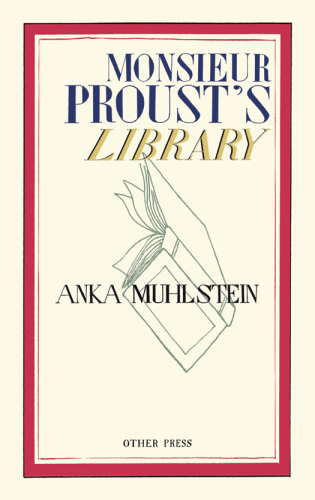
Monsieur Proust's Library
کتاب های مرتبط
- اطلاعات
- نقد و بررسی
- دیدگاه کاربران
نقد و بررسی

December 24, 2012
What was Proust reading? In this set of essays about the library of the author of In Search of Lost Time, Muhlstein (Balzac's Omelette: A Delicious Tour of French Food and Culture with Honoré de Balzac) wonders why "Proust seemed incapable of creating a character without putting a book in his hands," and how investigating some of the writer's literary touchstones might help us to better understand his oeuvre. Ferreting out all the textual sources and influences of the man who had "read everything and forgot nothing" would be a Herculean task; Muhlstein recognizes this. Her study limits itself to what she sees as the formative texts of Proust's childhood: Saint-Simon, Racine, Balzac, Thierry, Chateaubriand, de Nerval, Baudelaire, the Goncourts. She also makes the case that the work of John Ruskin is a significant and underappreciated presence in Proust's fiction. Muhlstein offers some deft intertextual readings (The chapter entitled "A homosexual reader: Baron de Charlus" offers a marvelous insight about how Proust takes up the Balzac-ian theme of "cruelty of children towards their parents.") but sometimes the breadth of the subject makes Muhlstein's slim volume seem more like a frenetic catalogue of proper names than a thematically coherent exegesis. (Nov.) Â

October 15, 2012
An amusing, albeit too tightly condensed look at clues to Proust's treatment of style, memory and homosexuality. Literary biographer Muhlstein, whose previous work charmingly explored how Balzac used food in his novels (Balzac's Omelette, 2011), mines the territory of Proust's literary influences, such as Racine and Anatole France. In Racine's audacious grammar, Muhlstein notes, Proust learned that "an original writer was entitled to stray from strict rules of syntax but was bound to respect scrupulously the precise meanings of words." Proust acknowledged that he gleaned the idea of the evocative madeleine from a passage in Francois de Chateaubriand's Memoirs from Beyond the Grave, in which the narrator is roused by the "magic sound" of the warbling thrush to recall the estate of his father. Muhlstein also emphasizes Proust's debt to Anglo-Saxon writers, especially Ruskin, whom Proust apparently spent nine years studying and translating, largely thanks to his mother, who was fluent in English. Proust admired Ruskin's "exquisitely minute descriptions" and a kind of organic order that helped Proust understand how to give a proper form to his own towering novelistic structure. In his character Baron de Charlus, the homosexual aristocrat, Proust consolidated much of his reading in Balzac, Saint-Simon and Madame de Sevigne, while Proust imbued his character Bergotte, the writer, with his young-adult adulation for novelist France. Muhlstein has evidently read and absorbed Proust and his influences deeply, but some readers may wonder why she does not employ Lydia Davis' fresh new translation of Proust's work rather than the dated Moncrieff-Kilmartin edition. A mostly stimulating study that should deepen readers' appreciation of Proust and draw them back to the original "underpinning.."
COPYRIGHT(2012) Kirkus Reviews, ALL RIGHTS RESERVED.

November 15, 2012
Muhlstein ("Balzac's Omelette") undertakes to reveal the large role that literature plays in Proust's magnum opus, "In Search of Lost Time", her work here arising from a talk she gave at the New York Society Library in April 2011. She explains that Proust himself was a great reader from childhood, and most of the characters in his novel also have some relationship to books. Furthermore, his interpretation of certain authors, such as Ruskin and Baudelaire, gave him ideas for creating the form of his novel, while some fictional characters dreamt up by others (e.g., Balzac's Vautrin) inspired him to enhance his own literary personages (e.g., Baron de Charlus). Proust's narrator often quotes Racine's "Phedre". VERDICT The academic Proust expert may not uncover any literary revelations here, but the general madeleine enthusiast is bound to be entertained by Muhlstein's witty and lucid prose, despite plot spoilers. Unlike that of the Duc de Guermantes in Proust's novel, Proust's library was not bound uniformly in blonde calfskin leather; Muhlestein energetically explores the vastly ranging literary tastes of a literary genius. With illustrations by Andreas Gurewich and Gary Roar.--Lara Jacobs, Brooklyn, NY
Copyright 2012 Library Journal, LLC Used with permission.

























دیدگاه کاربران